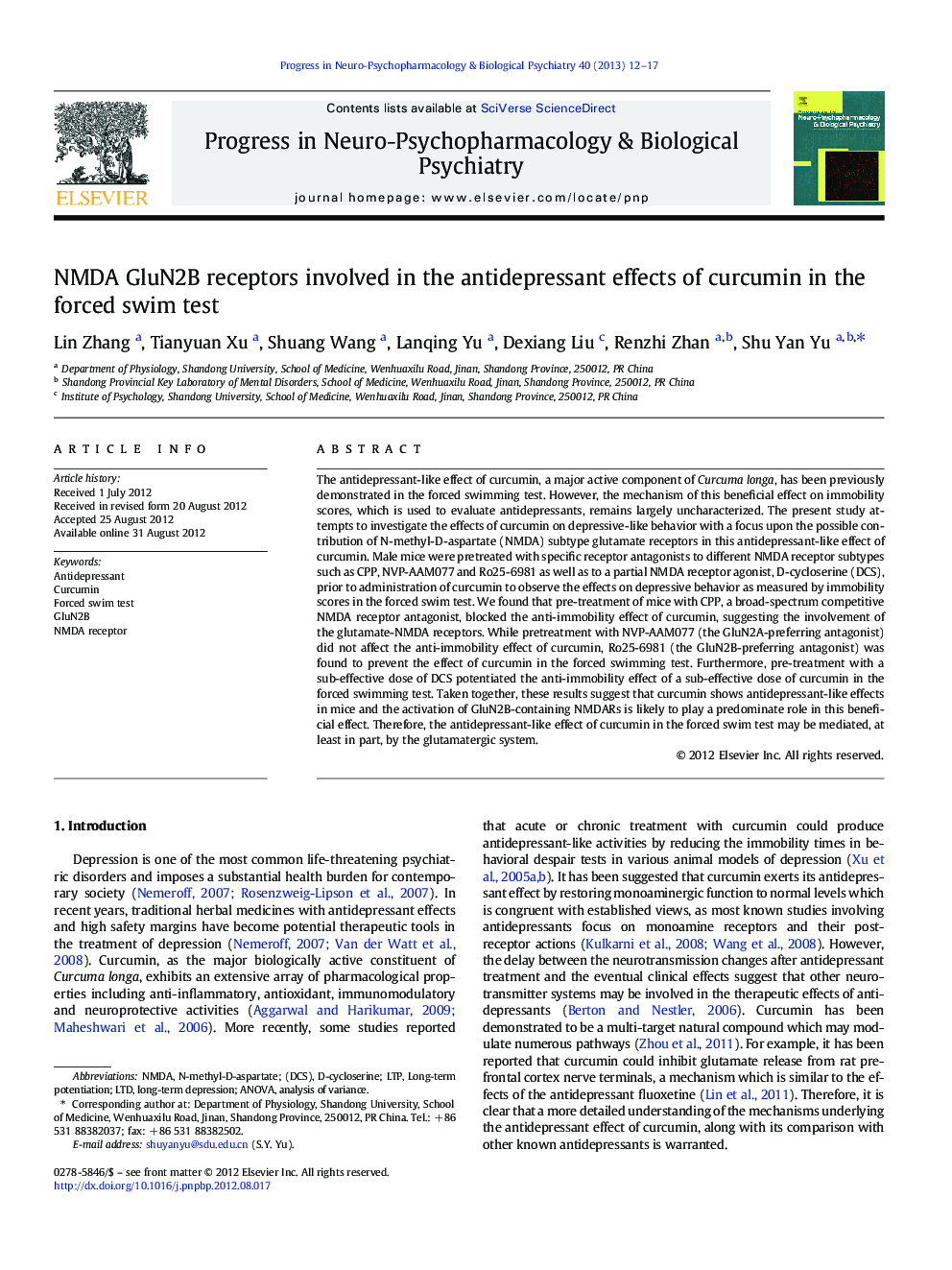| کد مقاله | کد نشریه | سال انتشار | مقاله انگلیسی | نسخه تمام متن |
|---|---|---|---|---|
| 2564941 | 1561054 | 2013 | 6 صفحه PDF | دانلود رایگان |

The antidepressant-like effect of curcumin, a major active component of Curcuma longa, has been previously demonstrated in the forced swimming test. However, the mechanism of this beneficial effect on immobility scores, which is used to evaluate antidepressants, remains largely uncharacterized. The present study attempts to investigate the effects of curcumin on depressive-like behavior with a focus upon the possible contribution of N-methyl-D-aspartate (NMDA) subtype glutamate receptors in this antidepressant-like effect of curcumin. Male mice were pretreated with specific receptor antagonists to different NMDA receptor subtypes such as CPP, NVP-AAM077 and Ro25-6981 as well as to a partial NMDA receptor agonist, D-cycloserine (DCS), prior to administration of curcumin to observe the effects on depressive behavior as measured by immobility scores in the forced swim test. We found that pre-treatment of mice with CPP, a broad-spectrum competitive NMDA receptor antagonist, blocked the anti-immobility effect of curcumin, suggesting the involvement of the glutamate-NMDA receptors. While pretreatment with NVP-AAM077 (the GluN2A-preferring antagonist) did not affect the anti-immobility effect of curcumin, Ro25-6981 (the GluN2B-preferring antagonist) was found to prevent the effect of curcumin in the forced swimming test. Furthermore, pre-treatment with a sub-effective dose of DCS potentiated the anti-immobility effect of a sub-effective dose of curcumin in the forced swimming test. Taken together, these results suggest that curcumin shows antidepressant-like effects in mice and the activation of GluN2B-containing NMDARs is likely to play a predominate role in this beneficial effect. Therefore, the antidepressant-like effect of curcumin in the forced swim test may be mediated, at least in part, by the glutamatergic system.
► Curcumin produced antidepressant-like effect in the mice forced swim test.
► Pre-treatment of CPP blocked the antidepressant-like effect of curcumin.
► Blockade of GluN2A receptors did not affect the antidepressant effect of curcumin.
► Blockade of GluN2B receptors prevented the antidepressant effect of curcumin.
► Sub-effective dose of DCS potentiate the antidepressant-like effect of curcumin.
Journal: Progress in Neuro-Psychopharmacology and Biological Psychiatry - Volume 40, 10 January 2013, Pages 12–17